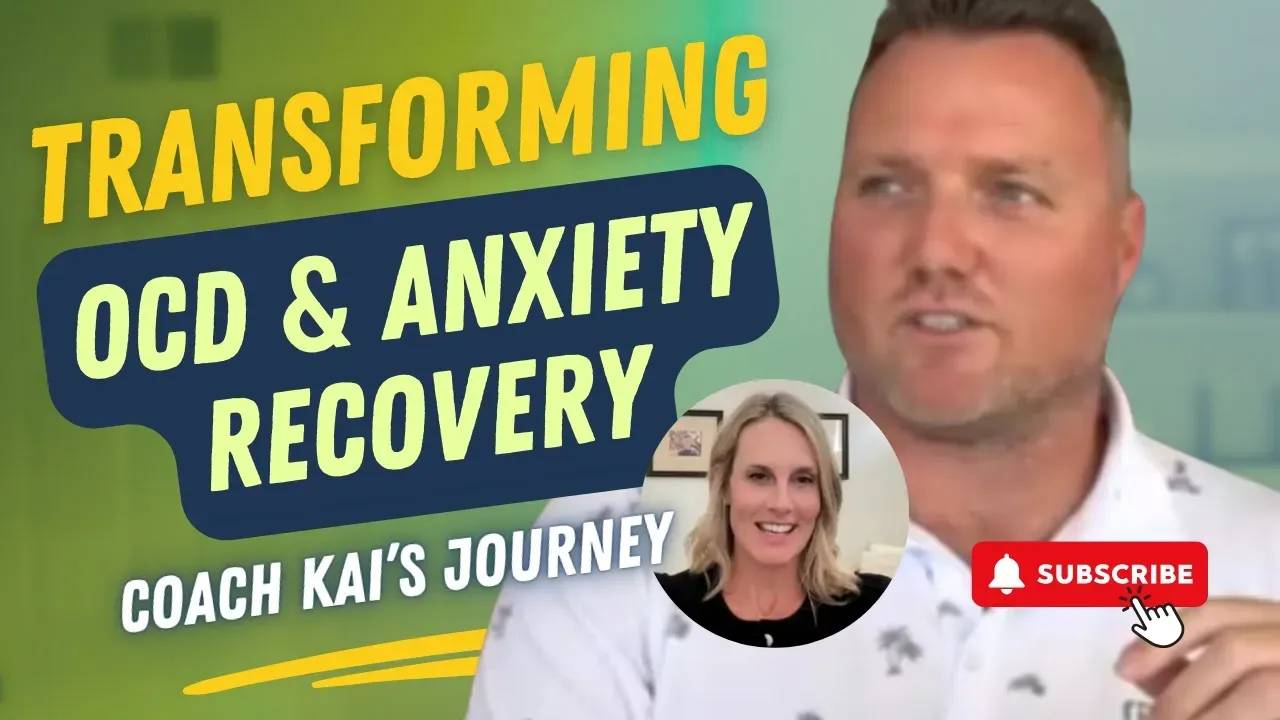Transforming OCD and Anxiety Recovery: Insights from Matt Codde and Coach Kai’s Journey
Sep 24, 2025
Are you struggling with OCD or anxiety and feeling stuck in an endless loop? You’re not alone. In a revealing episode of the Restored Minds podcast, Matt Codde sits down with Coach Kai to share their personal journeys of recovery, the mindset shifts that changed everything, and how genuine hope and education can pave a new path.
Below, we break down the most powerful takeaways from their conversation—plus, practical tips for those on their own journey to recovery.
1. Normalizing the Struggle: You Are Not Alone
One of the most reassuring messages from Matt Codde and Coach Kai is the importance of normalizing the struggles people face with OCD and anxiety. Both shared how, in the depths of their suffering, they felt isolated, ashamed, and even “broken.” Matt described that dark period as feeling like an outsider, asking himself, "Am I a freak? Do I even belong?"
Coach Kai related, explaining how carrying a “hidden secret” made it impossible to feel truly authentic. For them, connecting with someone who genuinely understood their experience was the pivotal moment that sparked hope.
2. The Power of Validation
Matt Codde highlights a simple but transformative tool: validation. When someone is in pain, just having their experience validated—rather than dismissed—can create an instant state shift. Kai remembers how Matt’s casual, “That’s fine, I’ve heard that before,” was the first time she realized her thoughts didn’t mean she was fundamentally wrong or bad.
Having someone genuinely understand and normalize your intrusive thoughts is often the beginning of real progress.
3. Mindset Matters: Triggers Are Opportunities
A central theme from Coach Kai is the power of mindset. Rather than viewing triggers as insurmountable threats, she reframed them as opportunities to practice new responses and build a healthier relationship with her thoughts and feelings.
Matt echoes this, emphasizing that the “skills and tools” you use are only as good as the mindset you bring. With the right education and perspective, what once seemed like endless suffering becomes a series of meaningful opportunities for growth.
4. Understanding Anxiety: You Are Not Your Thoughts
One of the most liberating lessons was learning to separate one’s identity from one’s thoughts or feelings. Both Matt Codde and Kai described how, for years, they believed they were their anxious thoughts, which only strengthened their suffering.
When they discovered that anxiety and intrusive thoughts are simply forms of energy—passing experiences rather than personal defects—they found the courage to face their fears without shame. This perspective shift made difficult emotions less overwhelming and opened the door to real healing.
5. There Is a Process—And You Don’t Have to Do It Alone
Matt stresses that there actually is a process to recovery, and it’s not just about piecing together random advice or white-knuckling your way through exposures. Without a foundational knowledge and a structured approach, many people misjudge what works and what doesn’t.
Kai shares that the support and structured path provided by Restored Minds and TBC (The Behavioral Center) allowed her to finally see her progress clearly, avoid false beliefs about “being the worst case,” and stop comparing her journey to others.
6. Finding Hope: If Recovery Is Possible for One, It’s Possible for You
A recurring thread in the episode is the hope that comes from witnessing others recover. “If you could do it, I could do it,” Kai says, echoing a belief shift that changed everything. Matt and Kai both emphasize that recovery is not limited to a chosen few—it’s available to anyone willing to learn, practice, and shift their perspective.
7. Pivotal Advice: “It’s Just a Misunderstanding”
Both Matt Codde and Coach Kai wish they could go back and tell themselves in their worst moments: “You are not your thoughts and feelings—this is just a misunderstanding.”
The journey to recovery does not need to be more complex than it is. Most people are suffering not because they are broken, but because they are unknowingly misidentifying with their thoughts and emotions.
8. Moving Forward: Small Shifts, Big Changes
Sometimes, the smallest mindset shift can create the biggest changes. For anyone currently struggling, know that suffering is not a life sentence—change is possible, and often much more rapidly than we believe once the right understanding and support are in place.


